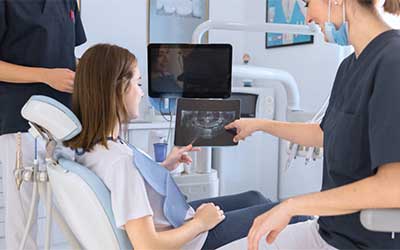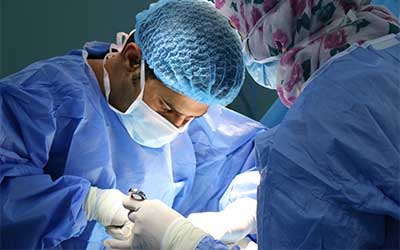Here's a general overview of what the MBBS syllabus in Georgia might include:
Pre-Clinical Years:
Anatomy:Study of the human body's structure, including gross anatomy, histology, and embryology.
Physiology:Exploration of how the human body's systems function and interact.
Biochemistry:Study of the chemical processes and compounds within living organisms.
Biophysics: Application of physics principles to biological systems.
Microbiology: Study of microorganisms, including bacteria, viruses, fungi, and parasites.
Pathology: Investigation of diseases, their causes, and effects on the body.
Clinical Years:
Pharmacology: Study of drugs, their actions, interactions, and therapeutic uses.
Internal Medicine: In-depth exploration of adult health and diseases.
Surgery: Study of surgical techniques, procedures, and patient care.
Obstetrics and Gynecology: Focus on women's reproductive health, pregnancy, and childbirth.
Pediatrics: Study of child health and development.
Radiology: Understanding medical imaging techniques and their interpretation.
Psychiatry: Study of mental health disorders and their treatments.
Dermatology: Exploration of skin-related disorders and treatments.
Ophthalmology: Study of eye diseases and vision care.
Otorhinolaryngology (ENT): Focus on ear, nose, and throat disorders.
Orthopedics: Study of musculoskeletal system disorders and treatments.
Clinical Rotations:
Students typically participate in clinical rotations, where they gain practical experience in various medical specialties by working directly with patients under the supervision of experienced physicians. These rotations help students apply theoretical knowledge to real-world patient care scenarios.
Final Year:
During the final year of the MBBS program, students might engage in an internship or clinical clerkship, where they consolidate their skills and knowledge while working closely with patients and healthcare professionals. This year often involves rotations in different departments to ensure a well-rounded understanding of medical practice.
It's important to remember that specific universities may have variations in their curriculum and the order in which subjects are taught. Additionally, the medical field is constantly evolving, so the curriculum is likely to adapt to new advancements and changing healthcare needs.
Exchange Programs
Georgia's medical institutions offer a comprehensive range of specialties, from internal medicine to surgery, pediatrics to radiology. Participating students get the chance to observe and assist seasoned healthcare professionals, honing their clinical skills and enhancing their medical knowledge. This exposure to different medical cases and treatment methods fosters a well-rounded education that can be applied in various medical settings worldwide.
Furthermore, the exchange programs encourage cultural exchange and networking. Interacting with fellow medical students and professionals from different backgrounds not only enhances clinical skills but also promotes understanding and tolerance among diverse communities. Participants often forge lifelong friendships and professional connections that transcend borders. Participating in a medical student exchange program in Georgia can also be a transformative personal experience.
Some key considerations for the safety of Indian MBBS students:
Ensuring the safety of Indian MBBS students is of paramount importance for their overall well-being, academic success, and future contributions to the field of medicine. As medical education requires rigorous training and dedication, creating a safe and conducive environment is essential to nurture the growth and development of these aspiring doctors.
Georgia hosts a significant number of international students, including Indians. Connecting with fellow students can provide insights into the safety of the area and help you navigate daily life.
Indian students might experience some cultural differences, but Georgia is known for its warm and hospitable population. It's helpful to familiarize yourself with local customs and norms.
Admission Procedure:
The admission procedure for MBBS (Bachelor of Medicine, Bachelor of Surgery) in Georgia may vary slightly among different universities, but here's a general overview of the process.
Eligibility Criteria: Most universities in Georgia have specific eligibility criteria that applicants must meet. These criteria may include minimum academic requirements (often a high school diploma or equivalent), minimum age, and possibly specific subjects studied in high school.
Application Process:
Selecting Universities: Research and choose the universities in Georgia that offer MBBS programs. Some popular universities include Akaki Tsereteli State University, Kutaisi University, University of Georgia, European University, Georgian American University and David Tvildiani Medical University.
Application Form: Fill out the university's application form, which can usually done by contacting our Officials. Aspiring Students might need to provide personal and educational information.
Document Submission:
Academic Transcripts: You'll need to provide your high school academic transcripts or equivalent. These transcripts should demonstrate that you meet the minimum academic requirements.
Passport Copy: A copy of your valid passport.
Passport-Sized Photographs: You might need to submit passport-sized photographs as per the university's specifications.
Language Proficiency: As the medium of instruction is often English, you might need to demonstrate your English language proficiency through video interview with University. Some universities might offer an English language test as an alternative.
Interview (applicable): Every universities conduct interviews as part of the admission process. These interviews could be in person, over the phone, or via video conferencing.
Admission Decision: After reviewing your application, documents, exam scores, and possibly conducting an interview, the university will make an admission decision. You'll be notified whether you've been accepted into the MBBS program.
Acceptance and Visa:
Acceptance Letter: When you will get permission in the Ministry of Education and Science of Georgia, University will provide an acceptance letter, along with the university acceptance letter you have to pay One semester tuition fee in the university account mentioned in the acceptance letter.
Visa Supporting Documents: After confirmation of your payment from university financial department university will provide you all necessary visa supporting documents like Invitation Letter, Accomodation Letter, Acceptance Letter, Ministry Decree and Enrolment Letter(Rector Decree).
Visa Application:Along with all the visa supported documents from university, Our company will provide you Georgia travel insurance and student visa application with that you have to visit nearest VFS Global Centres or Embassy of Georgia to submit your application.
Travel: Once your visa is approved, you can make travel arrangements to Georgia. Upon arrival, We will take you to the University and you can start your MBBS program.
Residence Permit:Once you start your MBBS program in the University, university will provide you reference letter for residence permit along with that we will help you to get your residence permit.


